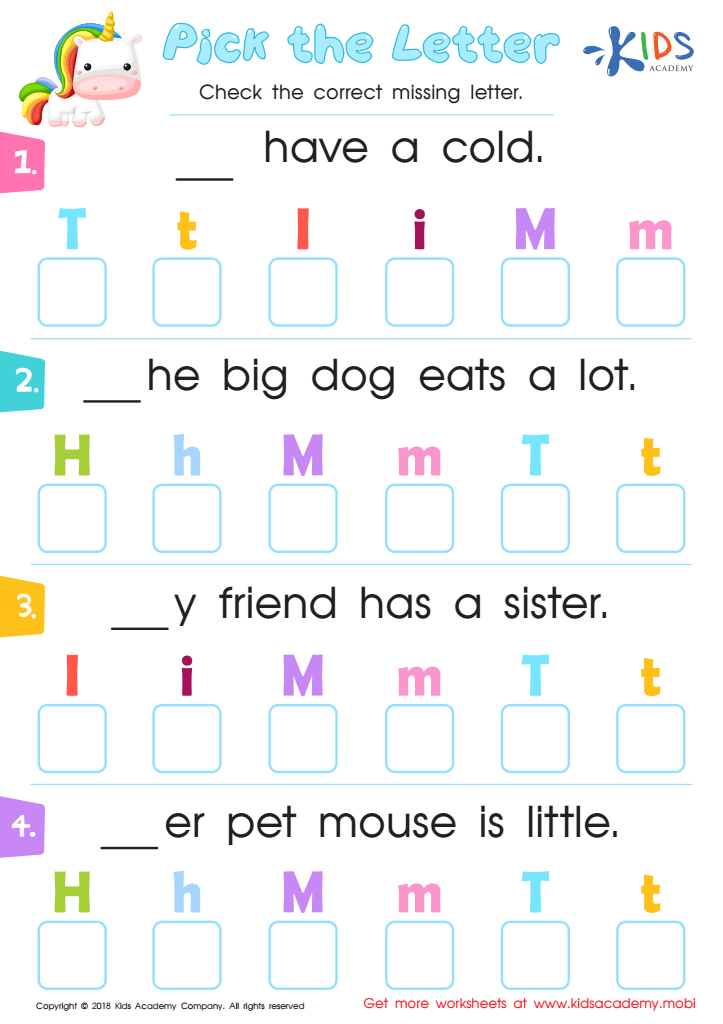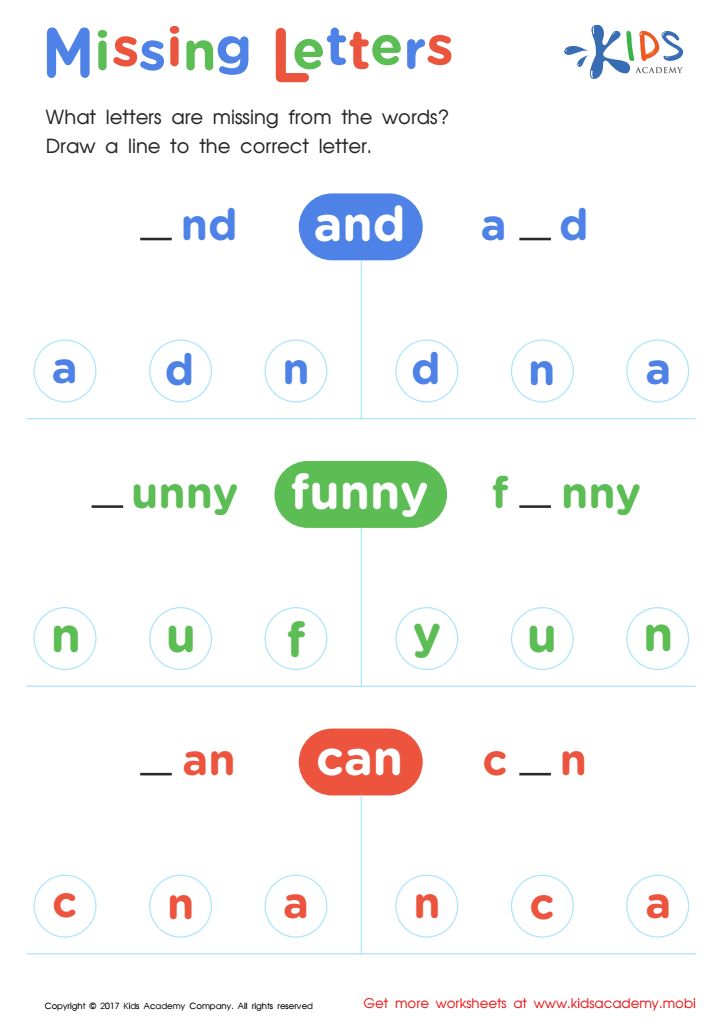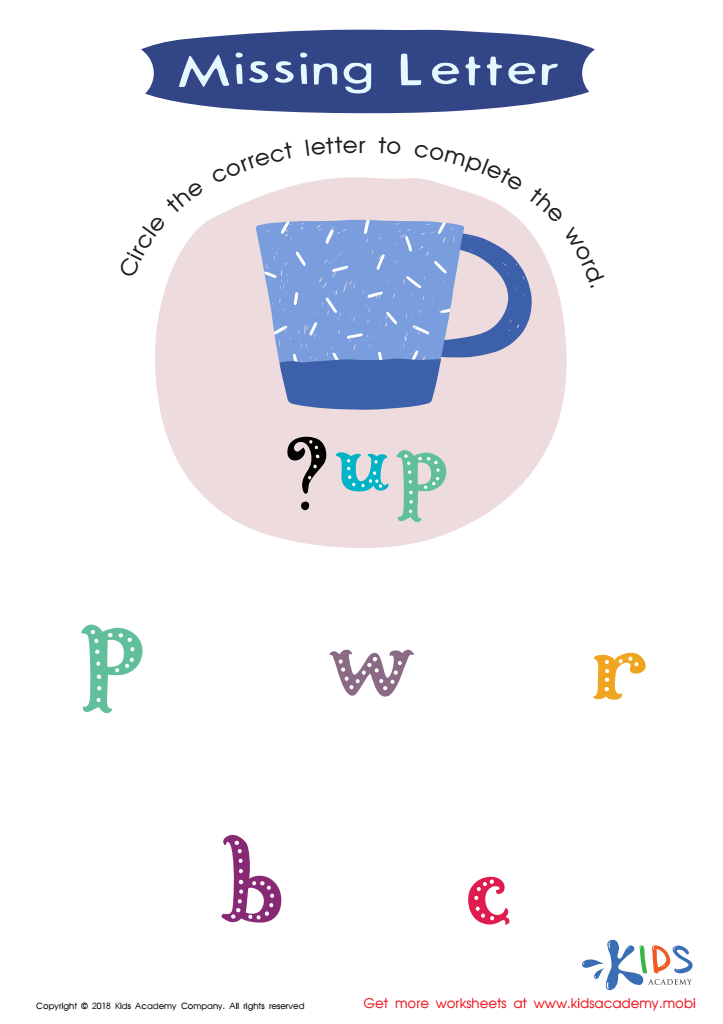Alphabet Recognition Missing Letters Worksheets for Ages 3-9
3 filtered results
-
From - To
Explore our engaging Alphabet Recognition Missing Letters Worksheets, designed for children aged 3-9! These interactive worksheets help young learners enhance their alphabet skills by identifying missing letters in words and phrases. Perfect for preschool and early elementary education, these activities promote letter recognition, vocabulary development, and critical thinking. Each worksheet features vibrant illustrations and age-appropriate content that keeps kids motivated and focused. Parents and teachers can easily incorporate these resources into homeschooling or classroom settings to ensure a fun learning experience. Boost your child's literacy skills today with our printable worksheets and watch them thrive as they master the alphabet!


Pick the Letter Worksheet


Missing Letters Worksheet


Missing Letter Worksheet
Alphabet recognition is a foundational skill that is crucial for children's literacy development, particularly for ages 3-9. Parents and teachers should prioritize this skill as it sets the stage for reading and writing, which are essential for academic success. When children are able to recognize letters, they can begin to understand the relationships between sounds and letters, fostering phonemic awareness. This understanding is vital when they start to decode words during reading.
Identifying missing letters in words, often practiced through interactive games and activities, enhances this skill by reinforcing letter familiarity and encouraging cognitive engagement. It also promotes problem-solving skills as children learn to think critically about the structures of words.
Moreover, engaging in alphabet recognition activities can significantly boost children's confidence and motivation in learning. Children who grasp these concepts early will find themselves better equipped to tackle more complex literacy skills as they progress through school. Therefore, both parents and teachers play a critical role in creating supportive environments where alphabet recognition is emphasized, laying a strong foundation for lifelong literacy and learning. Prioritizing these early educational experiences is an investment in a child's future success in academics and beyond.
 Assign to My Students
Assign to My Students














